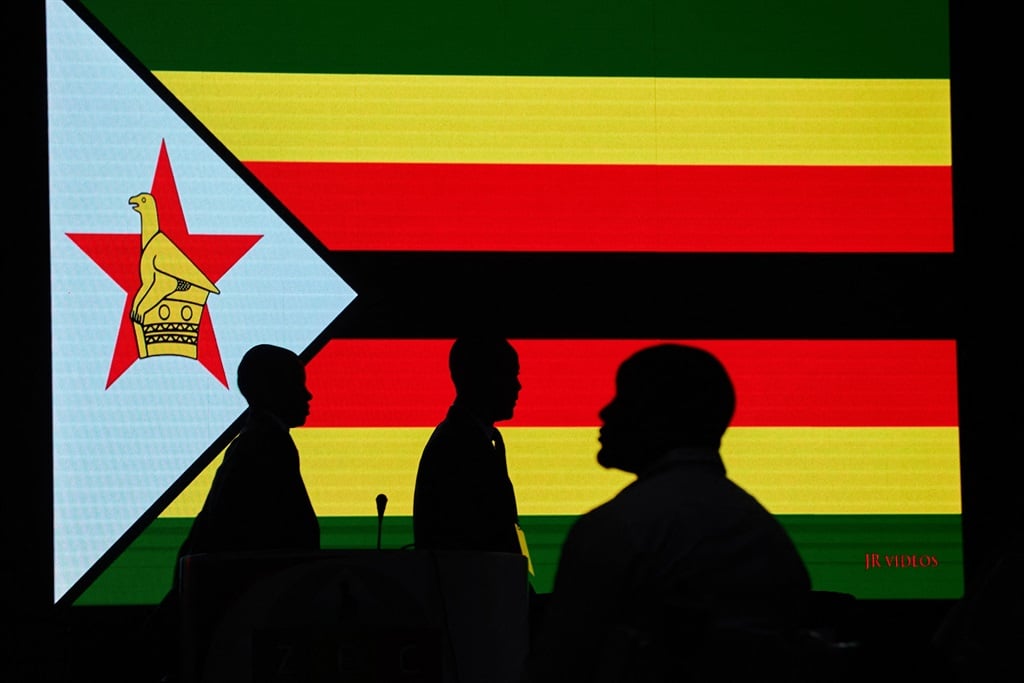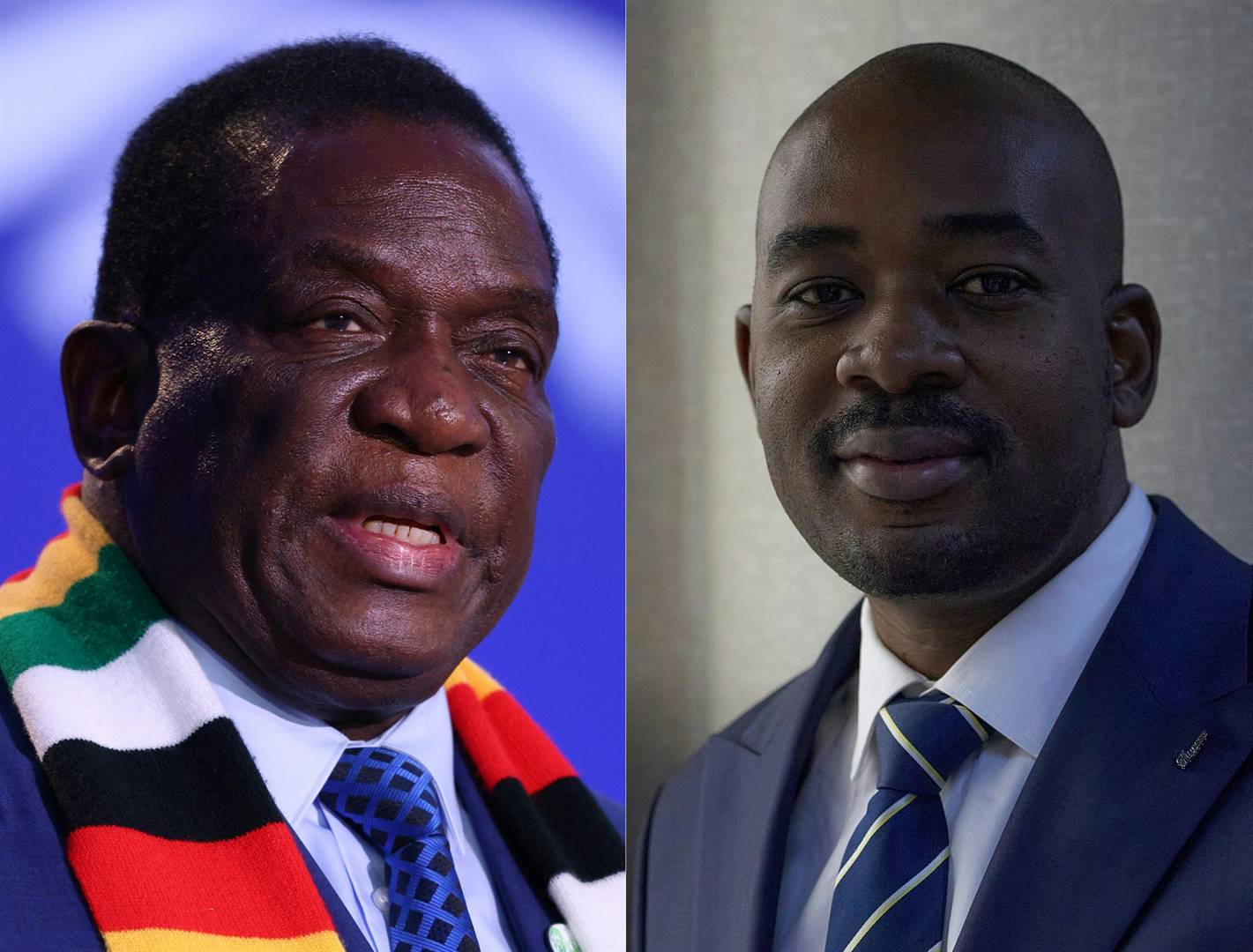

After international election observers flagged Zimbabwe’s August elections as a sham, the EU withdrew support for the Zimbabwe Electoral Commission.
Jekesai Njikizana/ AFP
- The European Union pulled funding for Zimbabwe’s elections after its last one.
- That means an upcoming R95-million bill, just as civil servants are due their year-end bonuses.
- The by-election will be unusually important, presenting Zanu-PF with a chance of securing a two-thirds majority.
December by-elections in Zimbabwe will cost the country – now without a key former funder for polls – R95 million, according to the Zimbabwe Electoral Commission (ZEC).
It comes at a time when its treasury will already be strained, thanks to civil-servant bonuses.
Zimbabwe is due to replace 15 parliamentarians and several local councillors recalled by a renegade self-proclaimed secretary-general of the main opposition, the Citizens Coalition for Change (CCC). That could give Zanu-PF a two-thirds majority in Parliament.
The August general elections, where Zanu-PF fell just short of that mark, were run at a cost of some R290 million. But at the time, Zimbabwe enjoyed the support of the European Union, which provided funding as part of its efforts to support democracy in various countries.
After international election observers flagged those elections as a sham, the EU withdrew support for the ZEC.
A nomination court for the by-election sat on Tuesday, with those who qualified to stand for election paying nomination fees of R19 000 each.
READ | December by-elections in Zimbabwe as the main opposition disappears
The 9 December election comes just after health workers and the military are due to receive their annual bonuses at the end of November, and just before civil servants are due their bonus payments.
Last week, Public Service and Social Welfare Minister July Moyo told the state-run Chronicle newspaper that “the bonuses are guaranteed”.
Finance Minister Professor Mthuli Ncube, presenting his Transitional Stabilisation Programme in 2018, bemoaned that by-elections were costly.
He said:
The regular conduct of by-elections by the Zimbabwe Electoral Commission, in compliance with constitutional provisions, exerts budgetary and cash flow challenges.
By 2020, two years after the 2018 general elections, the government had spent some R130 million to run 27 by-elections.
A Zanu-PF two thirds majority loading
The majority of recalled opposition legislators entered the race again, using the CCC name.
For political commentators, this helps Zanu-PF’s chances of a two-thirds majority.
“Double candidates will split the vote of the CCC because both sides claim to be CCC, and voters will be torn in between. In some constituencies, like Mabvuku-Tafara, where the CCC had narrow victories, Zanu-PF’s strong August showing could easily hand them the seats,” said Stevenson Dhlamini.
Zanu-PF needs a two-thirds majority to smooth-sail its preferred laws. The party’s Mashonaland West chairperson, Mary Mliswa-Chikoka, told party members to vote in their numbers.
“I urge all of us to desist from holding the long-held view that during by-elections people don’t turn out in large numbers. Let’s do away with this apathy and go and vote for tried-and-tested leadership,” he said.
ALSO READ | Zimbabwe’s opposition CCC to ‘disengage’ from parliament
The United Zimbabwe Alliance (UZA), led by Elisabeth Valerio, said it was not taking part in the 9 December by-elections as a “bold stand against a flawed system.”
UZA said the reputation of ZEC was not fit for an electoral body.
“We do not have confidence in the Zimbabwe Electoral Commission (ZEC), which has proven to be biased and has not implemented any meaningful electoral reforms since the disputed 2023 harmonised elections,” said Valerio.
The News24 Africa Desk is supported by the Hanns Seidel Foundation. The stories produced through the Africa Desk and the opinions and statements that may be contained herein do not reflect those of the Hanns Seidel Foundation.

